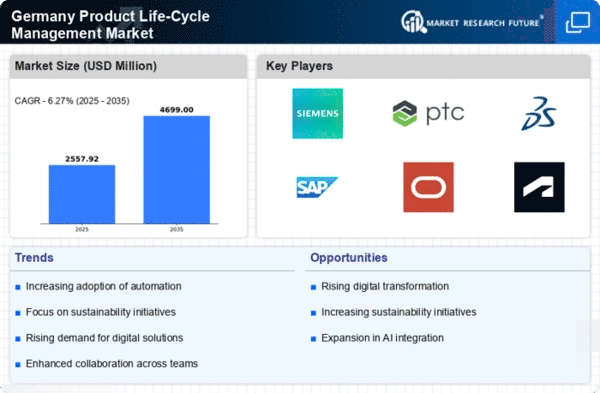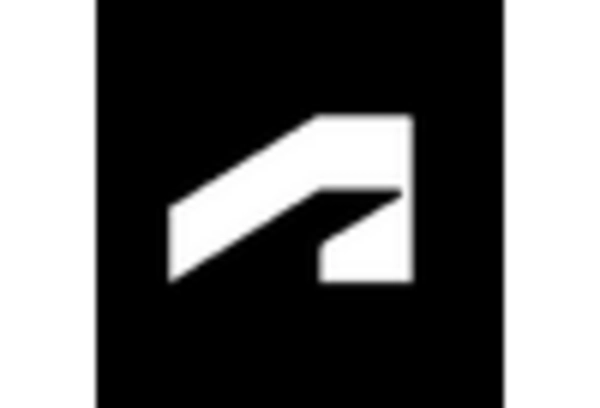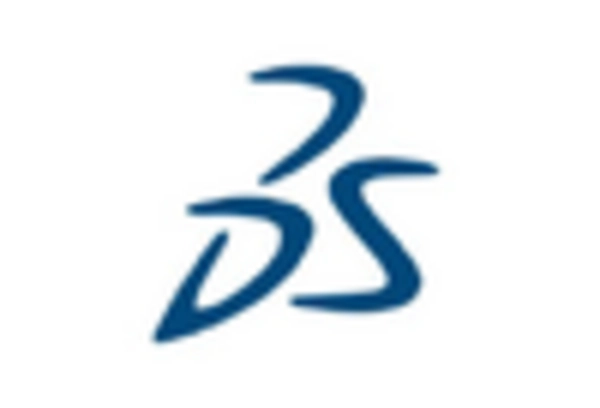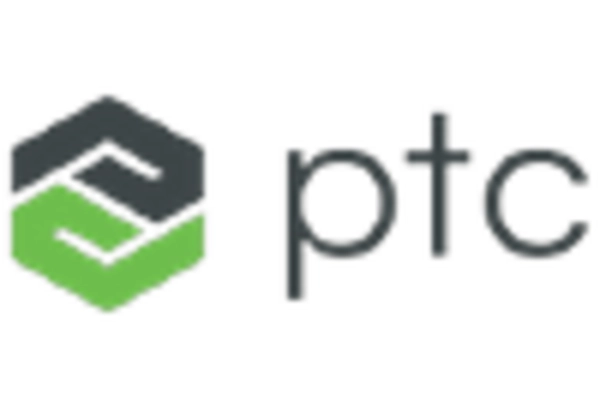Rising Demand for Customization
The product life-cycle-management market in Germany is experiencing a notable increase in demand for customization. As consumers become more discerning, companies are compelled to tailor products to meet specific needs. This trend is reflected in the growing investment in PLM solutions that facilitate rapid design changes and personalized offerings. In 2025, the market is projected to grow by approximately 15%, driven by the need for businesses to adapt quickly to consumer preferences. The ability to manage product variations efficiently is crucial for maintaining competitive advantage, thereby propelling the product life-cycle-management market forward.
Collaboration Across Supply Chains
Collaboration is becoming a pivotal driver in the product life-cycle-management market in Germany. As companies strive for greater efficiency, they are increasingly focusing on integrating PLM systems with supply chain partners. This collaborative approach enhances communication and streamlines processes, ultimately leading to reduced time-to-market. The market is anticipated to grow by 10% in 2025, as organizations recognize the value of shared information and resources. Effective collaboration not only improves product quality but also fosters innovation, making it a key factor in the evolution of PLM.
Regulatory Compliance and Standards
In Germany, stringent regulatory requirements are shaping the product life-cycle-management market. Companies must adhere to various standards, including environmental regulations and safety protocols. This compliance necessitates robust PLM systems that can track and manage product data throughout the lifecycle. The market is expected to expand as organizations invest in solutions that ensure compliance, with an estimated growth rate of 12% in 2025. The ability to demonstrate adherence to regulations not only mitigates risks but also enhances brand reputation, making effective PLM systems indispensable.
Shift Towards Circular Economy Practices
The product life-cycle-management market in Germany is witnessing a shift towards circular economy practices. Companies are increasingly adopting PLM strategies that emphasize sustainability and resource efficiency. This transition is driven by consumer demand for environmentally friendly products and the need to minimize waste. In 2025, the market is expected to grow by 11%, as organizations implement PLM solutions that support recycling, reuse, and sustainable sourcing. Embracing circular economy principles not only aligns with regulatory expectations but also enhances brand loyalty among eco-conscious consumers.
Technological Advancements in Data Analytics
The integration of advanced data analytics into the product life-cycle-management market is transforming how companies operate in Germany. Enhanced analytics capabilities allow organizations to derive insights from vast amounts of data, leading to improved decision-making and efficiency. As businesses increasingly rely on data-driven strategies, the demand for sophisticated PLM tools that incorporate analytics is likely to rise. This trend is projected to contribute to a market growth of around 14% in 2025, as firms seek to leverage data for optimizing product development and lifecycle management.
















